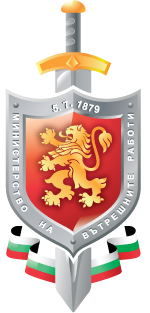The European Anti-Fraud Office (OLAF) closed large-scale investigations in 2017, showing again its capacity to detect and investigate complex fraud schemes across Europe and beyond. OLAF investigations ranged from major undervaluation fraud cases where fraudsters made profit from declaring falsely low values for goods at import in the EU, to cases where OLAF tackled organised crime groups defrauding funds destined for agriculture, or cases where investigators uncovered fraud in large infrastructure projects. Trends in anti-fraud investigations, as well as specific cases and operations led by OLAF are presented in the annual Report published today.
At the press conference launching the Report, the Office's Acting Director-General, Nicholas Ilett, said that "our investigative performance in 2017 shows that our work is essential in protecting EU taxpayers' money and ensuring that EU funds do not fuel fraud and corruption instead of financing projects that can bring real added-value to citizens."
OLAF's investigative performance in 2017 in numbers:
- OLAF concluded 197 investigations, issuing 309 recommendations to the relevant national and EU authorities.
- OLAF recommended the recovery of over EUR 3 billion to the EU budget. This exceptionally high figure stems from major undervaluation fraud cases concluded by OLAF during the year. OLAF opened 215 new investigations, following 1111 preliminary analyses carried out by OLAF experts.
- In the absence of any staff increase and despite the complexity of the cases it dealt with, OLAF succeeded in further reducing the duration of its investigations to 17.6 months overall.
Trends in anti-fraud investigations:
The transnational dimension of its work allows OLAF to form a unique view of the changing nature of fraud across Europe. For the second consecutive year, OLAF presents in this Report an analysis of some of the most striking trends revealed by its investigations:
- Corruption, conflict of interest and the manipulation of tender procedures continue to be encountered in fraud cases affecting EU structural funds, with some instances where organised crime groups try to gain profit;
- Fraudsters have increasingly attempted to defraud funds destined for research or the refugee crisis;
- The evasion of customs duties is orchestrated through transnational criminal schemes.
OLAF's unique role in fighting revenue fraud through global investigations:
OLAF is presenting in this Report a detailed overview of its activities aimed at protecting EU revenue, with the conclusion of a string of investigations in this area in 2017. Indeed, any gaps in the legislative setting or operational capacity of customs administrations to function across borders are quickly exploited by organised criminal groups. In this context, due to its ability to operate transnationally and to quickly gather and share information, OLAF plays a crucial role in preventing and tackling revenue fraud, as well as in assisting national customs administrations in their challenging work.
Contribution to the EU policies to fight fraud:
OLAF is regularly at the forefront of negotiating legislative texts concerning the protection of the EU’s financial interests against fraud and corruption. The decision to create a European Public Prosecutor's Office in 2017 marked a milestone in the defence of the financial interests of the European Union. OLAF has worked relentlessly in support of this project for over a decade, and it will continue to work alongside the EPPO to ensure taxpayers' money is effectively protected from fraud and corruption.
To read the full report, please click here.
